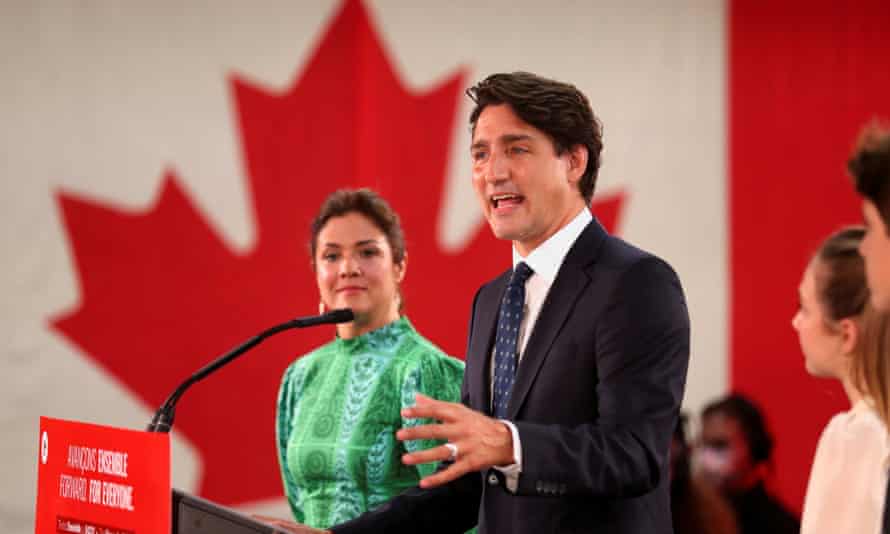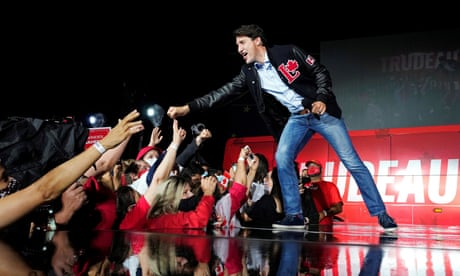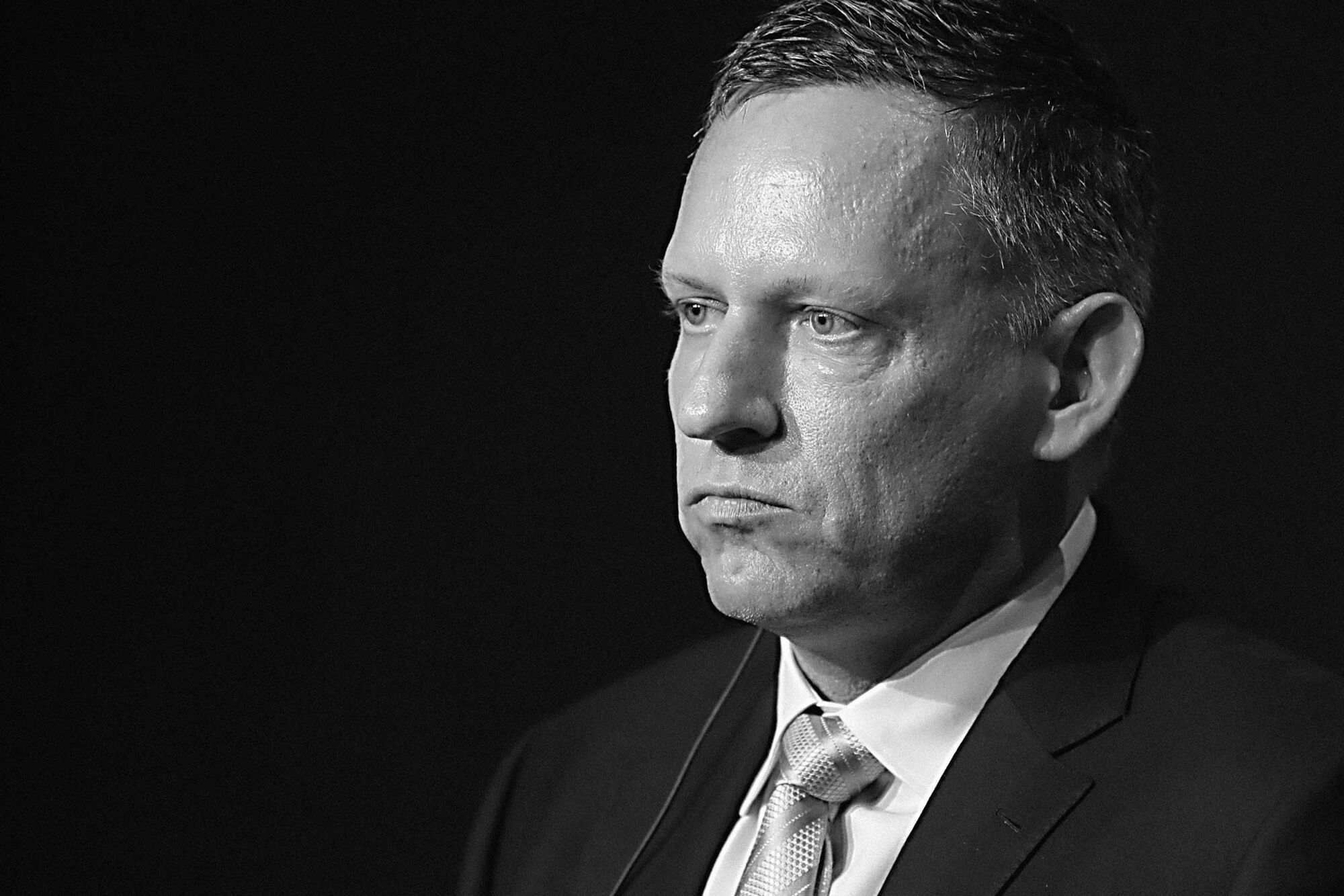BREAKING NEWS
A VERY CANADIAN ELECTION 2021
AND THE WINNER IS
LIBERAL
155CONSERVATIVE
122
BLOC QUÉBÉCOIS
33
NEW DEMOCRAT PARTY
26
GREEN PARTY
2
but fall short of majority
NDP projected to make minor gains in Jagmeet Singh's 2nd election as party leader
GEOGRAPHIC GAINS INCLUDING ANOTHER SEAT IN EDMONTON GRIESBACH MY RIDING
NDP platform centred on taxing the rich, promises for national pharmacare and dental programs

The NDP is poised to make a modest gain in seats but will likely remain in fourth place in Parliament and will not hold the balance of power in the projected Liberal minority government.
New Democrats are currently leading in 26 ridings, up slightly from the 24 it won in 2019. The party has earned 17.6 per cent of votes counted so far, up 1.6 per cent over its 2019 result.
Leader Jagmeet Singh is also projected to win his riding of Burnaby South.
"I want you to know our fight for you will continue," Singh said in a late night speech in Vancouver.
"You can be sure that we will be there for you, and you can also be sure that if we work together we can build a better society, and that's exactly what New Democrats will do."
Blake Desjarlais is also leading Conservative incumbent Kerry Diotte in the riding of Edmonton Griesbach, which the party had identified as a prime target.
The NDP is also leading or projected to win in 13 ridings in British Columbia, an improvement of two compared to 2019.
But the party had a disappointing night in Quebec, where they are not currently projected to pick up any new seats. Alexandre Boulerice is projected to hold his seat in the Montreal riding of Rosemont–La-Petite-Patrie, which will make him the NDP's sole Quebec MP for the second consecutive election.
The party will also fall well short of the 39 seats it won in the 2015 election. The NDP captured 103 seats and formed the Official Opposition during its "orange wave" of 2011.
A similar campaign, with slightly better results
The NDP campaign largely resembled its pitch to voters from the 2019 election, Singh's first as the party leader.
The $200 billion platform's signature promises included higher taxes on corporations and people the NDP calls the "ultra-rich;" as well as new national pharmacare and dental care programs.
The NDP has also proposed more ambitious emission reduction targets than the victorious Liberals, though the NDP plan has been criticized for lacking in detail.
Singh had said throughout the campaign that the inequities exposed by the pandemic made Canadians more amenable to his policy ideas.
"In this pandemic, people got more help because we were there, we were able to increase the supports to people," Singh said last week. "If people want more help, more New Democrats will make it happen,"
Senior party officials said they were also confident that voters would gravitate to Singh, who they said would benefit from an added two years of exposure since his first election as leader.
The CBC's Vote Compass found Singh rated highest among all party leaders in competence and trustworthiness, though many people who scored Singh highly in those categories said they did not plan to vote for the NDP.
What role will NDP have in next minority government?
Singh refused during the campaign to speculate about his party's role in a possible minority government, saying that he did not want to concede the election before votes were counted.
He was sharply critical of both the Conservatives and Liberals during the campaign.
Just last week he said that Justin Trudeau has been an "abject failure" as prime minister, and that both Trudeau and Erin O'Toole would be "bad for Canada."
However, with as few as 26 seats, the NDP will not hold a strong bargaining position to push the Liberals on some of the big-ticket policies it proposed during this election.
As a minority government, the Liberals will need to lean on other parties to pass legislation, though either the Bloc or NDP could provide enough votes to pass Trudeau's signature promises such as a new national childcare program.
Canada election result: Trudeau wins third term after early vote gamble
Justin Trudeau says voters have given him ‘clear mandate’, but his Liberal party is expected to remain as a minority government

Leyland Cecco in Toronto
Tue 21 Sep 2021
Justin Trudeau has won a third term as Canada’s prime minister, with his Liberal party set to capture the most votes in the snap election, a result he called a “clear mandate” to get the country through the pandemic.
With results still trickling in late Monday night, Trudeau was on track for another minority government, meaning he will once again need to work with other parties to pass legislation.
“I hear you when you say you want to get back to the things you love, not to worry about the pandemic or the election,” Trudeau said from Montreal early on Tuesday morning, acknowledging the decision to hold an early election was deeply unpopular. “You have given this government and this parliament clear direction.”
Preliminary results indicated his Liberals had won or were leading in 156 seats – short of the 170 needed for a parliamentary majority. Erin O’Toole’s opposition Conservatives had 121. The result largely mirrored the outcome of the 2019 election.
Elections Canada, which oversees the vote, had previously warned that some results would take days to be finalised as mail-in ballots are counted.
 |
| OMG HE IS DOING TRAVOLTA IN GREASE |
Trudeau energized by anti-vaccine protests in Canada election few wanted
The prime minister gambled by calling an election in August in the hopes that the government’s pandemic response could boost his party’s power in parliament.
But rival parties quickly called foul, accusing the prime minister of conducting a “vanity project” during a fourth wave of the coronavirus pandemic.
Opposition leader O’Toole calling the election a “quick power grab” after conceding defeat early on Tuesday.
Advertisement
“Five weeks ago, Mr Trudeau asked for a majority. Tonight, Canadians did not give Mr Trudeau the majority mandate he wanted. In fact, Canadians sent him back with another minority at the cost of $600m dollars,” he said.
While the opposition Conservatives led in the national popular vote, Monday’s result nonetheless marked a defeat for O’Toole. His centrist campaign failed to persuade enough voters to toss out the Liberal party after six years in power. The last time the Conservative party won an election federally was in 2011.
“Our support has grown, it’s grown across the country, but clearly there is more work for us to do to earn the trust of Canadians,” O’Toole told supporters, while suggesting that he planned to stay on as leader. “My family and I are resolutely committed to continuing this journey for Canada.”
The progressive New Democratic party, led by Jagmeet Singh, was expected to pick up electoral seats, but fall short of its hope for “kingmaker” status.
“Our fight will always continue,” said Singh, congratulating Trudeau on his win. While Singh spent much of the election attacking Trudeau, he and his party are likely to support many of the Liberals’ policies – and will try to push the government to the left.
Heading into the race, Trudeau’s Liberals held 155 seats in parliament, the Conservatives held 119 seats, the Bloc Quebecois held 32 seats and the NDP held 24 seats. The Green party had only two seats and there were five Independent MPs.
Despite the lack of a parliamentary majority, the prime minister is likely to find strong support in parliament for the Liberal party’s marquee policy – C$10 per day child care across the country.
However, the Liberals lost two cabinet ministers: Maryam Monsef, who most recently held the title of minister for women and gender equality, and Bernadette Jordan, the fisheries minister.
Green party leader Annamie Paul, who has faced numerous challenges to her leadership in recent months, was set for a bitter loss in her race in downtown Toronto.
Maxime Bernier, the leader of the People’s party of Canada, which has run on on a platform against public health measures like vaccines and masks, and which critics have called xenophobic and racist, failed to win his race, as did all his other candidates.
O'Toole says he'll be there to fight Trudeau again
CPC leader Erin O'Toole says he will be back to run against Trudeau again after the Liberals won another minority parliament.

Stephanie Taylor and Holly McKenzie-Sutter, The Canadian Press
Published Monday, September 20, 2021 8:33PM EDT
Last Updated Tuesday, September 21, 2021 12:44AM EDT
OSHAWA, Ont. -- Erin O'Toole watched Monday's election results trickle in at a hockey rink in Oshawa, Ont., but the Conservative leader who bet that putting a centrist image on the party would win it more seats may have met his Waterloo.
The Canadian Press is projecting that Justin Trudeau's incumbent Liberals will pick up enough seats to form a minority government, falling short of the majority it had sought. As of about 11:50 p.m., the Liberals were elected or leading in 156 seats compared to the Conservatives at 123.
O'Toole had campaigned on a pitch for Canadians not to reward Trudeau for triggering an election in the midst of a fourth wave of the COVID-19 pandemic, when taxpayer money could have been better spent on battling the novel coronavirus.
The 48-year-old Tory leader also tried to convince voters his "renewed" party wasn't their "dad's" or "grandfather's" Conservative party. O'Toole told voters he was a proponent of reproductive and LGBTQ rights, and he introduced more environmentally minded and worker-friendly policies.
Strategists say what comes next for O'Toole, who faced criticism from within his party's for moving it from the right to the political centre, will depend on whether the Tories win the popular vote or whether he can show members he's made gains.
"It depends what the election results look like," said Shakir Chambers, political strategist, who helped Doug Ford's Progressive Conservatives win the 2018 provincial election in Ontario.
"Even if he doesn't get the popular vote, but the seat count has been increased, Liberals are weakened … in a minority Parliament you're looking at 18 to 24 months, I think it's a credible argument to make," Chambers said of O'Toole remaining as leader.
Chambers, however, said O'Toole will be under a lot of pressure if his move to the political centre, which could cost him votes in Alberta to make gains in Ontario, doesn't pay off.
"I think this experiment with a moderate Conservative party just might be over," Chambers said. "It's going to be a challenge for him."
If O'Toole is wondering what a fight to stay on as leader could look like, he should look no further than what happened to incumbent Saskatchewan MP and former leader Andrew Scheer.
In the 2019 federal election, Scheer fell short of defeating the first-term Liberal government after it was embroiled in months of turmoil over the SNC-Lavalin affair and the revelation that broke on the campaign trail that Trudeau had worn blackface multiple times in his youth.
Despite helping more than two dozen more Conservative MPs go to Ottawa in 2019 compared with the 2015 election, Scheer resigned after facing a campaign of pressure from within the party.
As the likely Liberal victory began to materialize Monday night, Conservative volunteer Tom Quigley said O'Toole's moderate positions may have surprised voters without enough time to win them over during the short election campaign, when many people were distracted by the pandemic.
"They expected a traditional conservative message and they woke up to find out they had a different type of leader, a more inclusive leader, a leader that was interested in listening," Quigley said at party headquarters in Oshawa.
O'Toole had campaigned over the past few days saying he would be the first prime minister to hail from the Greater Toronto Area, where he called home and made a career as a lawyer before entering politics.
He took the reins of the party last August after running as the "true blue" candidate, appealing to the party's Western and social conservative base. It wasn't long, however, before grumblings began within the Conservative tent, as O'Toole introduced a consumer carbon price on fuel -- despite campaigning during the leadership race to axe the Liberal policy.
His apparent flip-flopping continued during the campaign. He had backtracked on a pledge to protect the rights of health professionals from referring patients for services for which workers have moral objections, such as medical assistance in dying or abortions.
O'Toole also found himself on the defensive for making a platform promise to repeal the Liberal ban on some 1,500 models of firearms, including the AR-15. After dodging days of questions about the policy, the leader make the unconventional move of inserting a footnote in the platform, promising to keep the ban in place -- a policy deeply unpopular with gun owners and farmers.
The Liberals have also repeatedly attacked O'Toole for not requiring his candidates to be fully vaccinated against COVID-19, a move the Liberals say pandered to "anti-vaxxers" in the Tory caucus at the cost of preserving public health.
O'Toole has said Trudeau is playing politics with vaccines to divide Canadians and made it a rule that those in the Conservative campaign who are not fully vaccinated have to undergo daily rapid tests.
Polls closed at 9:30 p.m. in that province and in Quebec, where the party made a concerted push to pick up seats over the Bloc Quebecois and Liberals by promising to give the province more power over immigration and more money with no strings attached.
"The maximum we've done in Quebec since the merger of the party was 12 (seats), so if we achieve that, or we surpass that, this is actually like something that was unprecedented," Marc-Olivier Fortin, the party's campaign manager for Quebec, said Monday night.
"We'd be happy with 11, 12, 13 -- who knows," he added in an interview at the party's election night headquarters.
The Tories entered double-digit territory in Atlantic Canada, picking up 10 seats in the region, which had been swept by the Liberals in 2015.
Among the seats they flipped was South Shore-- St. Margaret's in Nova Scotia, ousting Bernadette Jordan, the Liberal fisheries minister. Conservative candidate Rick Perkins had been hoping that the anger and unrest between commercial fishers and Indigenous fishers over the opening of a Mi'kmaq lobster fishery would swing voters his way.
This report by The Canadian Press was first published Sept. 20, 2021.










